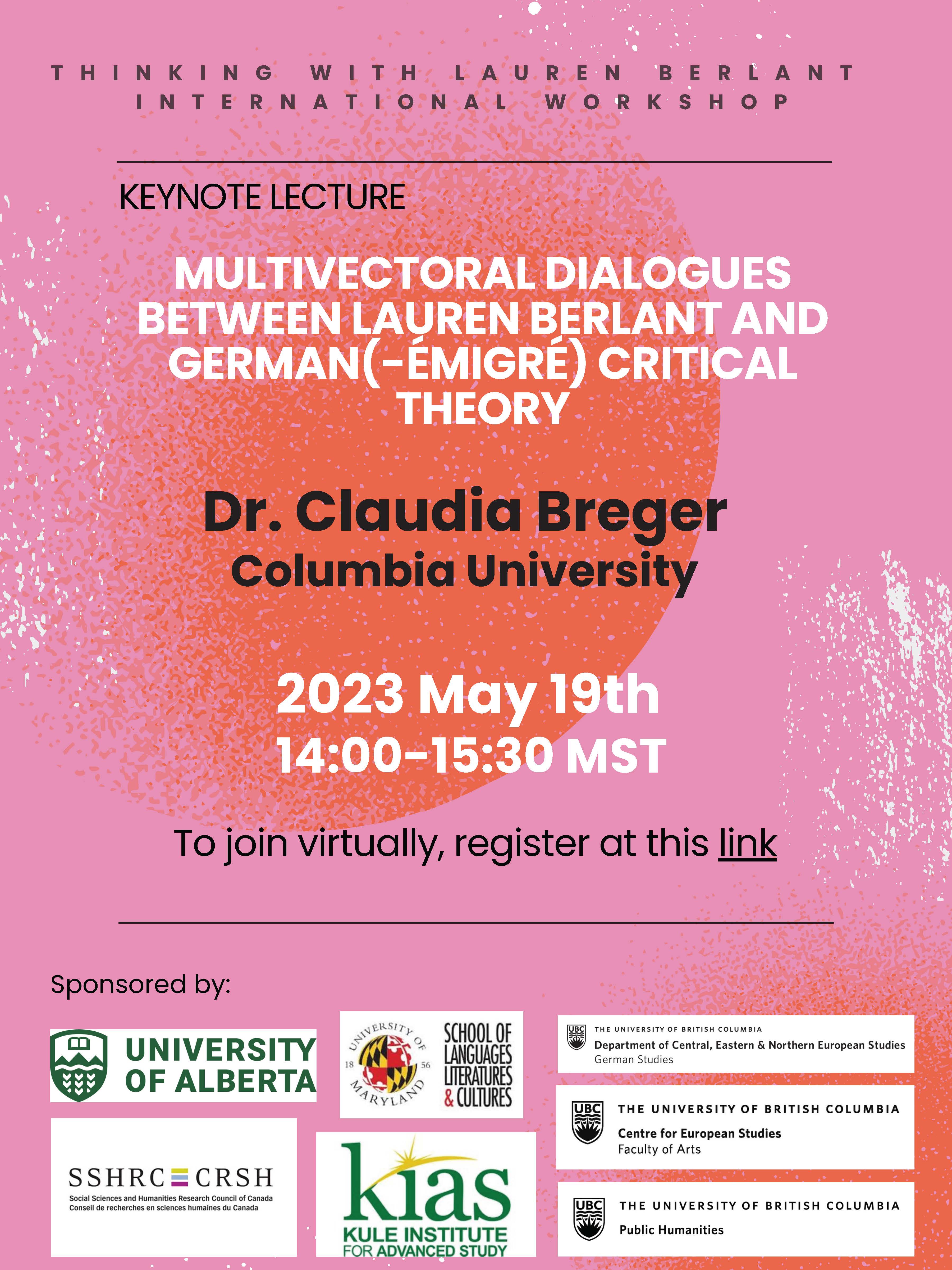
Last week, a keynote traced multidirectional influences and resonances between Berlant’s thought and German studies through a larger project of rethinking political aesthetics for our current moment.
The larger project undertakes dialogues between early and mid-twentieth century German-émigré thinking on political aesthetics in the face of fascism (Adorno, Benjamin, Bloch) and twenty-first-century work in affect and queer studies, neo-Marxism and Black radical theory. In particular, the talk will attend to Berlant’s dual focus on tracking lived realities in the age of neoliberalism and reemerging fascism and transforming cruel optimism into hope, or imagining visions for “making the world anew.”
This event was a public keynote part of “Thinking with Lauren Berlant,” a workshop held in Banff, Alberta from May 19th to 20th, bringing together international, emerging, and established German-studies and adjacent scholars engaging with Berlantian thought from a queer-feminist perspective to discuss the legacy of Berlant’s scholarship in/on/for German studies.
The workshop and the keynotes are made possible with funding from the University of Alberta, the University of British Columbia Vancouver, the University of Maryland College Park, the Social Sciences and Humanities Research Council of Canada and the Kule Institute for Advanced Study. Organized by Simone Pfleger, Hester Baer, Ervin Malakaj, and Carrie Smith.


